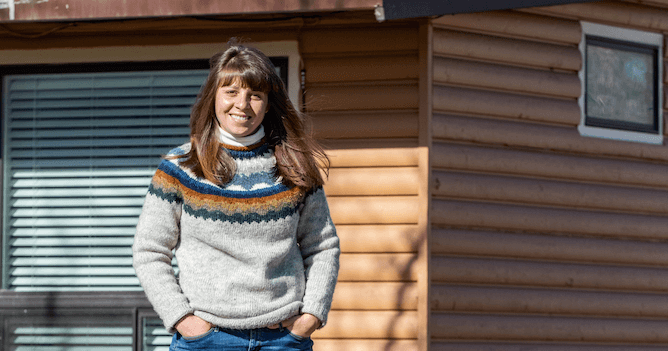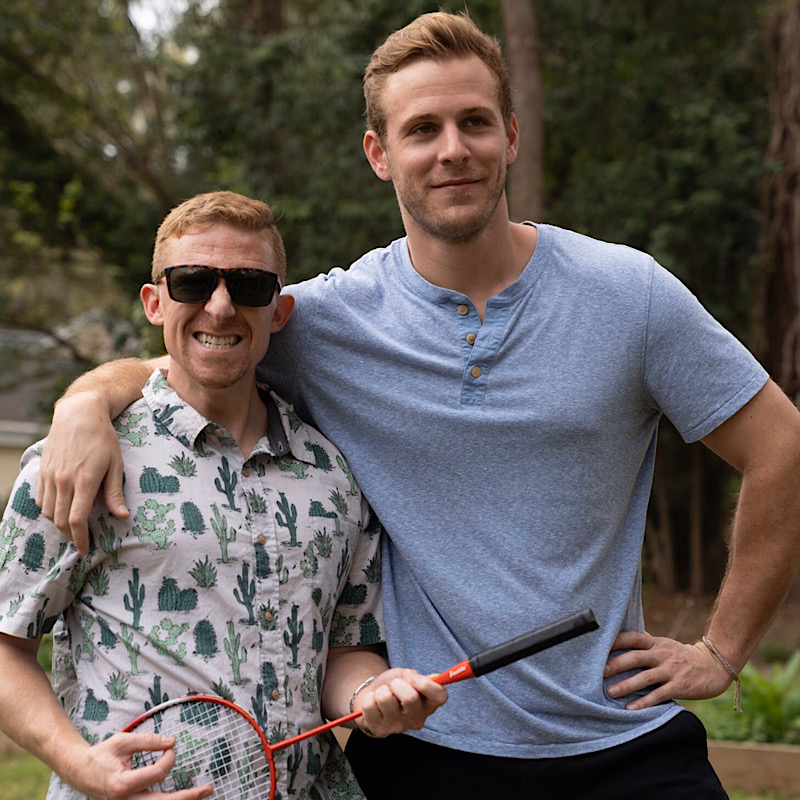
When young people across America need help with education, treatment, or simply future planning, their families often turn to Educational Consultants (EC). In a recovery context, Educational Consultants pair with individuals seeking treatment options and assist them in finding the best program for their needs. They also oversee the journey of someone in treatment, helping to place them in an aftercare program, ensuring continuity of treatment across multiple treatment centers, and serve as an advocate and mentor for your loved one during treatment.
Over the coming months on our blog we will feature some of the top education consultants (ECs) in the industry to help you understand their role in treatment and how they can help young people get back on track.
Our first post is an interview with Joanna Lilley, owner of Lilley Consulting. Joanna is one of the best ECs we work with. She has been an invaluable member of our Green Hill community.
Thank you so much Joanna for helping with this! Our first question is a basic one – What exactly is an Education Consultant?
Joanna: To me, an Educational Consultant (EC) can be the person who helps a family with educational or college placements. That’s why I try to keep my title as Therapeutic Consultant or Therapeutic Educational Consultant. I want to distinguish myself from others in that I don’t do college placements, or educational placements, unless it relates to connecting them to a therapeutic program that includes that aspect in their programming.
An EC is the person who helps the family get connected to whatever it is they need. They are also the advocate on behalf of the family in the case that a program is not meeting a family’s expectations. We are the people who provide expert advice to the families who know about us, and hire us to guide them. To me personally, it also means consulting to fill a gap. I saw a gap between students leaving higher education and needing to immediately get connected to treatment. Being an EC means I get to close that gap, or at minimum, help to connect those students in closing that gap.
How often does substance-use disorder (SUD) or addiction play into your clients stories?
Joanna: It’s rare that a young adult I work with does not have SUD. More often than not, a parent will contact me and not be aware of the depth of their child’s use. Or, in some cases they normalize and minimize the use. I hear “Well, they only smoke weed a little bit to help with their anxiety” more times than I’d like to admit.
I have also worked with a lot of young adults, male and female both, who have had multiple attempts at treatment due to their addictions. In those cases, I’m often looking at a dual-diagnosis program that can really get to the root of the mental health issues they’re dealing with, so they can replace their pain with healthy coping skills rather than substances. We live in a day and age where it seems that the majority of people are leaning on substances to avoid feeling.
Can you walk us through a “typical” case? In what situations do families find you, and where do you go from there? What types of crisis situations are your clients in when they reach out to you?
Joanna: Honestly, there is no “typical” case for me. The only thing that’s a guarantee is that the family who contacts me will have a current college-aged child who is not doing well. They may be referred to me by a Mental Health Professional, or a friend-of-a-friend who worked with me before. When they connect with me, I assess what’s going on, the level of the crisis, and listen to what it is the family is hoping for.
There are times when it is clear that one parent understands the depth of the crisis while the other will fight my recommendations every step of the way. When they are speaking to me to learn more about what I do, I am also observing and assessing whether or not this is a family I can work with. As much as I want to help everyone that calls me, that’s unrealistic. Some families would be better suited in working with a different Consultant. In that case, I’ll refer them to others I would trust.
As you can also imagine, a crisis for one person may not be a crisis for another. I’m always empathetic in listening to the parents to understand where their concern lies. Sometimes the crisis is more proactive, like a parent contacting me for their soon-to-be-college student who is unmotivated and the parent fears they won’t be successful in college. Depending on the time of year when the family contacts me, we have a lot of time to do research, for me to work directly with the young adult, and to get a better plan in place to support them in their transition into school. On the other end of that same spectrum, it could be the parent who is contacting me because their young adult is either in the hospital from a suicide attempt or detoxing after an accidental overdose. In those situations, I’m hired on immediately to find a residential placement for them to transition to immediately upon discharge from the hospital.
How do your clients find you?
Joanna: I don’t think any single family has found me the same way. Psychiatrists refer families to me. Psychologists or Therapists refer families to me. Case Managers and Discharge Planners from Hospitals will refer a family to me. Other Consultants will refer to me, especially if they don’t like working with young adults. And some programs when a parent calls and their child isn’t a good fit, will give my name with several other consultants to reach out to. I’ve even had families find me from the articles I’ve written, the Success is Subjective podcast, or any webinar I’ve been a part of.
I wish there was a single way to have families contact me, like a college or university giving a list of professionals for the students who are leaving due to mental health or substance use concerns. I can’t imagine that’ll happen soon though! Academic institutions are still very reluctant to be directly involved in sending students to substance use disorder treatment, but I hope this changes over time.
How do you work with families throughout treatment?
Joanna: I wear a lot of different hats when working with families, and what each family needs is completely different. I am the sounding board when parents call inquiring about how I might be able to help, and then share their observations, hopes, and concerns. I’m the researcher for programs, and the matchmaker of resources for the entire family. Sometimes that looks like connecting individuals with therapists, coaches, parent training, support groups, or articles and books.
For some families, I serve as the incident commander in a crisis -connecting families with law enforcement, attorneys, emergency response teams, court paperwork for emergency guardianship, interventionists, and transport services. Once they select a program and move forward with that plan, I help with the logistics of the transition. Sometimes this is merely communication between parties, other times it involves supporting travel logistics and recommendations.
Once my young adult client has enrolled in their program, I step back to allow the clinical team to do the work with my client and update the parents as appropriate. I am in communication weekly with the treatment team that is working with my young adult, and then as-needed with the family. Sometimes that is when an issue arises and they need me to advocate for them, or when/if my client is discharged prematurely from a program and needs to find a new emergency placement. I intentionally keep a small caseload of clients because I do want to be available for the families I work with.
In the end, I do want to work myself out of a job so that the young adult is stable, independent, self-sufficient (or getting there), and moving forward with their life. And simultaneously the family is no longer in crisis, seeing the changes in their young adult, and feeling the financial relief of no longer being responsible for them. It’s a win-win for everyone involved!

What does your day-to-day work look like?
Joanna: Great question! It definitely doesn’t look the same, depending on the time of year. Since I work with young adults, my practice tends to buzz around the beginning and end of college semesters, as well as during breaks! As much as I wish I could say I’m working 8 am – 5pm, some days it will be 7am – 10pm. Constantly on phone calls with parents or clinicians regarding clients.
And when I’m not in the office, I spend one week out of every month traveling to tour programs in-person. That way when I am recommending a treatment placement for a family, I can speak to having had boots on the ground.
What do you look for in extended-care programs?
Joanna: It really depends on each individual client. Between what the client shares as something they want and need, speaking with the parents for their wants, needs, and budget requests, as well as the clinical recommendations from current therapist, and lastly what the psychological assessment report is indicating. It’s definitely a complex matchmaking process, and I try my hardest to come up with the best solution for each young adult.
Often I am additionally factoring in their age, emotional maturity, interests, academic history, employment opportunities, where would they fit in culturally (based on politics), matchmaking with a specific therapist and/or a program with specific therapeutic modalities (i.e. experiential therapy, brainspotting, etc.), and lastly if there is a bed available and if the young person would be a good fit within the current community. Sometimes a program will be a great fit in theory, and yet in reality there’s no space or they wouldn’t fit in the current group. You just have to go back to the drawing board!
What has been the most rewarding aspect of your job?
Joanna: Being able to have a relationship with the young adult directly and see and hear them detail their growth is the most rewarding aspect of my job hands down! Parents often are grateful which is rewarding as well, and yet it’s witnessing the young adult finally be successful, independent, and having built healthy coping skills that keeps me going to work every day!
A huge thank you to Joanna for participating the first interview of our Meet an Educational Consultant blog series. This has been very helpful and informative for us, and we hope it has been for you as well.
Therapeutic Educational Consultants are an invaluable resource for families. Having an EC overseeing the treatment journey of a client entering our program helps to provide continuity between inpatient and aftercare.
If you would like to speak with Joanna about a loved one in need, she can be reached at 970-218-9958 or via email, or just connect with us and we’ll help you get in touch.






